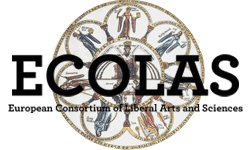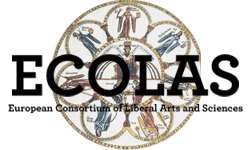Past ECOLAS events
Innovation in Teaching and Learning – intensive faculty development workshop
March 4-6, 2010, Bratislava
BISLA hosted an intensive weekend workshop for faculty from ECOLAS colleges that was focused on the latest teaching methods in liberal arts, innovative and interactive approaches, grounding in liberal arts for the “newcomers” among the faculty, as well as sessions devoted to the exchange of best practices in individual fields within the liberal arts education.
The workshop was supported by professors delegated by the Global Liberal Arts Alliance.
Aims included:
- Professional development training in liberal arts education
- Exchanging best practices
- Strengthening the network of liberal arts educators across Europe
You can find here program and a list of participants. Supporting texts can be found here, here and here.
Conference Liberal Arts and Sciences in Europe: Bringing Bildung Back In
June 8-9, 2009, Prague
The Czech Senate in the famous Wallenstein Palace in Prague was the site of the European conference on liberal arts education organized by the European Colleges of Liberal Arts and Sciences (ECOLAS) and hosted by the Faculty of Humanities of Charles University in Prague. University educators from fifteen countries representing twenty-one liberal arts colleges and programmes as well as students from Charles University, Roosevelt Academy, and the Bratislava International School of Liberal Arts gathered to discuss the issues provoked by the conference theme, “Liberal Arts and Sciences in Europe: Bringing Bildung Back In”. Participants listened to brief presentations from six different panels that focused on issues specific to liberal arts education in Europe. They included:
-
Why Liberal Arts and Sciences? Undergraduate education and the Bologna Process.
-
The Emergence of Liberal Arts and Science programme models in the European Higher Education Area.
-
Students in the Liberal Arts and Sciences: Experience and expectation
-
Creating a Foundation in the Liberal Arts: General education and interdisciplinarity.
-
European Quality Assurance, Tuning, and Recognition for Liberal Arts and Sciences Programmes.
-
The Future for Liberal Arts and Sciences Education in Europe
Each panel presentation was followed by extensive monitored discussion and commentary sessions that allowed conference participants the opportunity to share their own experience in the liberal arts and to learn from the example of others. A highlight of the programme was the keynote address delivered by Hans P.M. Adriaansens, founder and Dean of Roosevelt Academy in Middelburg, the Netherlands. Titled “Bringing Bildung Back In”, Adriaansens talk underlined both the European tradition for the liberal arts and its great potential within the current transformation of European higher education. Another highlight of the programme was the student panel on Experience and Expectation during which participants heard directly from students about their perception of the liberal arts and how this form of university education was likely to shape their futures. Finally, the lively discussions spilled over into the meals provided by ECOLAS and shared by all participants in some of the most attractive and traditional of Prague’s restaurants including the spectacular banquet held high above the city on the Mala Strana.
This conference represents the culmination of two years of organizing work on the part of ECOLAS which remains dedicated to the cultivation of liberal arts and sciences education throughout the European Higher Education Area. Summaries of the panel presentations will be available soon on this website. Additional information available includes the
ECOLAS Starting Conference
October 30-31, 2008, Amsterdam
ECOLAS and Amsterdam University College hosted a two-day conference for seventeen leaders from European liberal arts and sciences colleges and programs. Discussion sessions included: an introduction of ECOLAS as a consortium dedicated to the cultivation of the liberal arts and sciences within the European Higher Education Area; the role of liberal arts and sciences within the Bachelors degree cycle of the Bologna framework; a report on the recent position paper, “College Learning for the New Global Century”, produced by the American Association of Colleges and Universities; strategies for the next stage of evolution for ECOLAS including a general conference on the liberal arts and sciences to be held in April, 2009, and future funding opportunities.
The highlight of the two-day session was the presentation of Mr. Peter van der Hijden, Acting Head of Unit for the European Commission DG Education and Culture, whose talk titled “Liberal Arts in the European Policy Context: Bologna and Lisbon”, provoked a lively question and answer period regarding current and future higher education policy in the EU and the potential for including the liberal arts and sciences within the policy debate.
Minutes from the conference and a list of participants are available. This event stood for a starting point in a broad debate on liberal arts education in Europe that would be the theme of the following conference in Prague. It expects to attract participants from among liberal arts programmes in Europe as well as from colleges and universities willing to explore the potential of the liberal arts and sciences for their own institutions.




